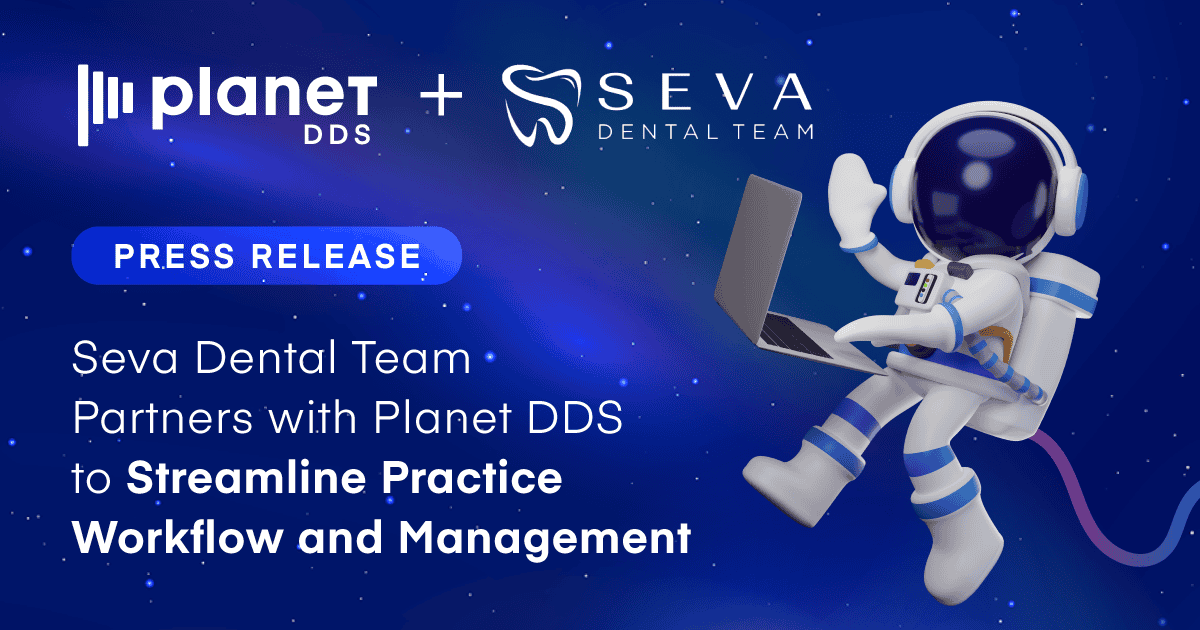The 9 Types of Dental Specialists and How They Can Help You
Want to know about types of dental specialists & what fits your business? Cloud 9 Software made a list of all types of dental specialties. ✓ Discover now!

Dental practices rely on having a solid team to provide services their patients expect. As part of setting up your business, you need to be aware of supply and demand in your local area. Beyond that, you need to decide whether or not you will offer specialty dentistry.
Accommodating different dental specialties allows you to provide the services your competitors don’t. Attracting more patients, charging more, and increasing your margins require you to know the various types of dental specialists available.
Let’s examine the different specialties in dentistry and the services they offer.
9 Types of Dental Specialists
All types of dental specialties bring something new to the table. Determining which services you want to offer will allow you to craft a unique brand that creates an impact within your local community.
How many dental specialties are there? There are nine board-certified dentistry specialties, with six focusing on individual patient care.
Here are the nine types of dental specialists you need to be aware of.
1. General Dentistry
Approximately 80% of all dentists fall into the category of general dentistry. General dentists concentrate on the overall health of the teeth and mouth. They carry out several types of services, including:
- Dental examinations
- X-rays
- Tooth decay treatments
- Tooth removal
- Fluoride treatments
- Restorative dentistry
Unless you’re a highly specialized clinic, you will need at least one or two general dentists to cover your patient’s everyday oral healthcare needs.
Most dental clinics will employ a team of general dentists and offer referrals to specialists in their local area.
2. Family Dentistry
Family dentists are much the same as general dentists. However, they’re considered to be a distinct type of dental specialist.
These dentist specialties offer the same services as general dentists. The difference is they treat patients at every stage of life. As you would expect, a family dentist will treat entire families, often for life.
They require a wider breadth of knowledge than general dentists and are best suited to local communities with broad age demographics. 
3. Cosmetic Dentistry
Cosmetic dentists give patients a perfect smile and empower them to feel confident in their teeth. Although many general dentists can and do offer cosmetic procedures, anyone who wants to provide cosmetic procedures must undergo additional training after graduating from dental school.
If you want to offer services like teeth whitening, veneers, and gum contouring, you’ll need to enlist the services of a cosmetic dentist.
While most people believe cosmetic dentistry is relatively new, it’s one of the oldest types of dentistry. Cosmetic services are typically pricey and come with high margins, making them an excellent investment if you’re looking to expand.
4. Periodontists
Periodontists focus on the periodontium, the soft tissues that make up the teeth and jaw. These dentists prevent, diagnose, and treat diseases that impact the surrounding structures that keep the teeth in good health.
They will provide treatments for the gums, jawbones, and other soft tissues that allow the teeth to do their job.
Hiring a periodontist is crucial for patients who may be struggling with tooth loss and misalignment.
5. Prosthodontists
Losing teeth can be a massive blow to anybody’s confidence. It can also create problems eating, drinking, and talking. Patients may lose their teeth for several reasons, including poor oral hygiene and accidents.
Bringing a prosthodontist into your business enables you to play a leading role in restoring smiles. Prosthodontists perform procedures to restore teeth that have been decayed, damaged, or lost.
6. Oral Surgeons
If you want to offer more specialized services, maxillofacial surgeons can perform full-blown oral surgery on the premises. Someone who has had their mouths impacted by trauma, genetic deformities, caries, or disease can struggle to find the treatment they need.
These surgeons are highly specialized and require in-depth training and experience to perform surgery on the mouth and jaw. 
7. Endodontists
Both periradicular tissues and dental pulp are essential to a healthy mouth. Endodontists provide treatments to ensure the tissues, nerves, and blood vessels surrounding the root of a tooth remain in good working order.
While general dentists and other dental specialty associates can perform root canals, endodontists are the specialists. To put it in perspective, a general dentist may conduct a root canal once or twice per week. An endodontist may perform them five times per day.
Bringing an endodontist onboard can be an excellent way to provide better quality surgeries and free up time for your general dentists to serve more patients needing basic dental services.
8. Orthodontics
Orthodontic dentists are often seen as an offshoot of the cosmetic dentist because they deliver teeth straightening services. Specializing in malocclusions is not just about aesthetics but also function.
Someone with malocclusion will typically have an overbite or underbite. It’s a particular problem for younger people. Orthodontic treatments like clear aligners, braces, and space maintainers offer an opportunity for you to increase your margins.
If your practice serves young families, orthodontic services could help you attract more patients.
9. Pediatric Dentists
One of the types of dental specialists in high demand is the pediatric dentist. Good oral healthcare begins from day one. The needs of a child or adolescent differ from those of an adult.
Pediatric dentists are one of the dental specialties aimed at a single demographic. They provide comprehensive treatments to children, and help young people overcome physical and mental difficulties that could be impacting their oral healthcare.
Like general dentists, they can also provide services like fluoride treatment and tooth sealants.
If you serve families or have lots of younger patients in your practice, adding a pediatric dentist to the team is an excellent investment in your future success.
Conclusion
The various types of dental specialists all offer something different. Understanding what they provide and whether your practice wants to move in that direction is crucial to how to grow your dental management.
Make an investment in your business that enables you to manage your team more efficiently. Cloud 9 Software is the specialty dental industry’s leading cloud-based solution for managing your practice anywhere and anytime.
To learn more about how a Cloud 9 solution can improve your business, request your free demo now.



